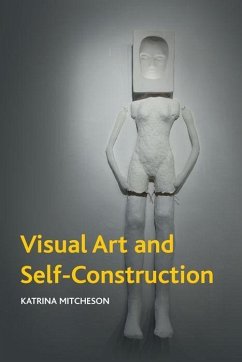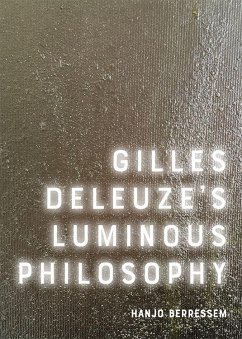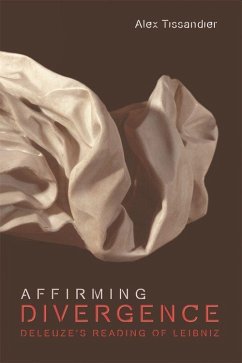Nicht lieferbar

Deleuze and Guattari's What Is Philosophy?
A Critical Introduction and Guide
Versandkostenfrei!
Nicht lieferbar
'Much more than a guide to Deleuze and Guattari's last work, this rich and insightful book unpacks key themes of Deleuze's earlier work. Bell shows how his conception of philosophy engages with the history of philosophy and connects it with elements of contemporary Analytic philosophy. This is essential reading for every serious student of Deleuze.' Paul Patton, University of New South Wales Australia 'Bell's book is not only a guide to What is Philosophy? but a critical introduction to Deleuze and Guattari's philosophy as a whole. Bell writes with an admirably clear and lucid prose, and even ...
'Much more than a guide to Deleuze and Guattari's last work, this rich and insightful book unpacks key themes of Deleuze's earlier work. Bell shows how his conception of philosophy engages with the history of philosophy and connects it with elements of contemporary Analytic philosophy. This is essential reading for every serious student of Deleuze.' Paul Patton, University of New South Wales Australia 'Bell's book is not only a guide to What is Philosophy? but a critical introduction to Deleuze and Guattari's philosophy as a whole. Bell writes with an admirably clear and lucid prose, and even long-time readers of Deleuze will find much in his analyses that is challenging and thought-provoking. A rich and rewarding book.' Daniel W. Smith, Purdue University A reader's guide to Deleuze and Guattari's explanation of philosophy and its relationship to science, logic and art Deleuze and Guattari's final collaborative work, What is Philosophy?, can be understood as a meditation on a life well lived. Crucial to this is a concept of learning composed of three inseparable components: philosophy, science and art. Their answer to the specific question posed in the title is simple enough: philosophy 'is the art of forming, inventing and fabricating concepts'. In this book, Jeffrey Bell explores what that involves. Key Features . Gives you an account of philosophy that can serve as an introduction to Deleuze and Guattari . Mirrors the chapters and themes of What is Philosophy?, making it the perfect companion to the text . Discusses each of the examples in What is Philosophy? separately, with suggestions for further reading so that you can explore them more thoroughly . Clarifies a number of key contemporary debates in philosophy, such as issues related to realism and metaphysics, through the approach laid out by Deleuze and Guattari Jeffrey A. Bell is Professor of Philosophy at Southeastern Louisiana University. Cover image: Room Perspective with Inhabitants by Paul Klee, 1921 Cover design: [EUP logo] www.euppublishing.com ISBN [cover]: 978-0-7486-9253-8 [PPC]: 978-0-7486-9252-1 Barcode












